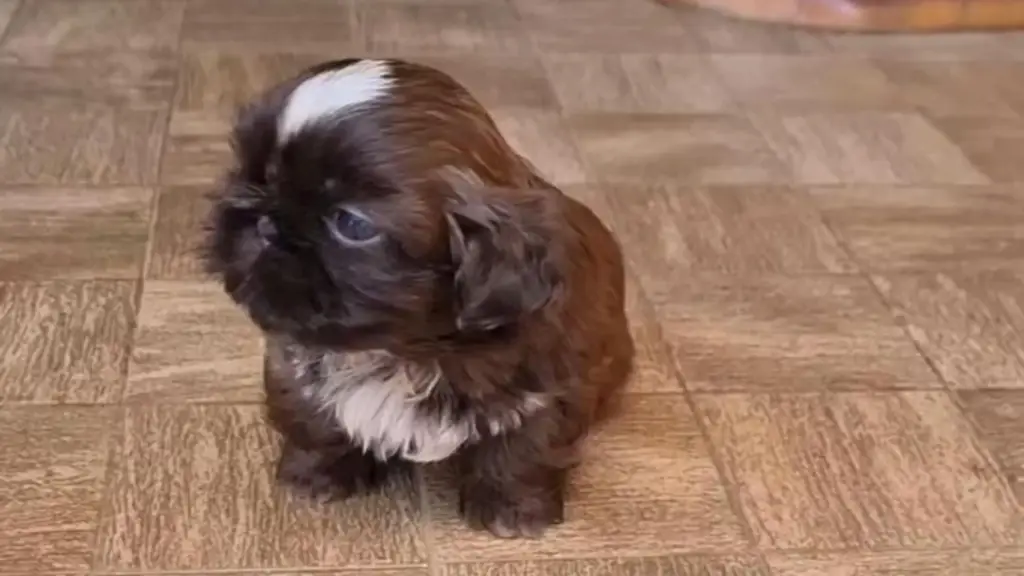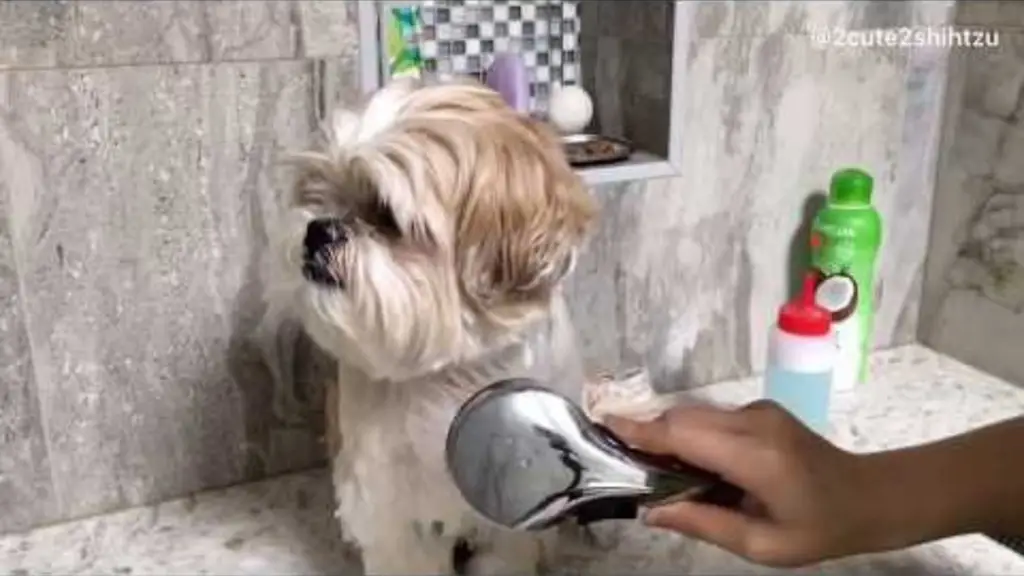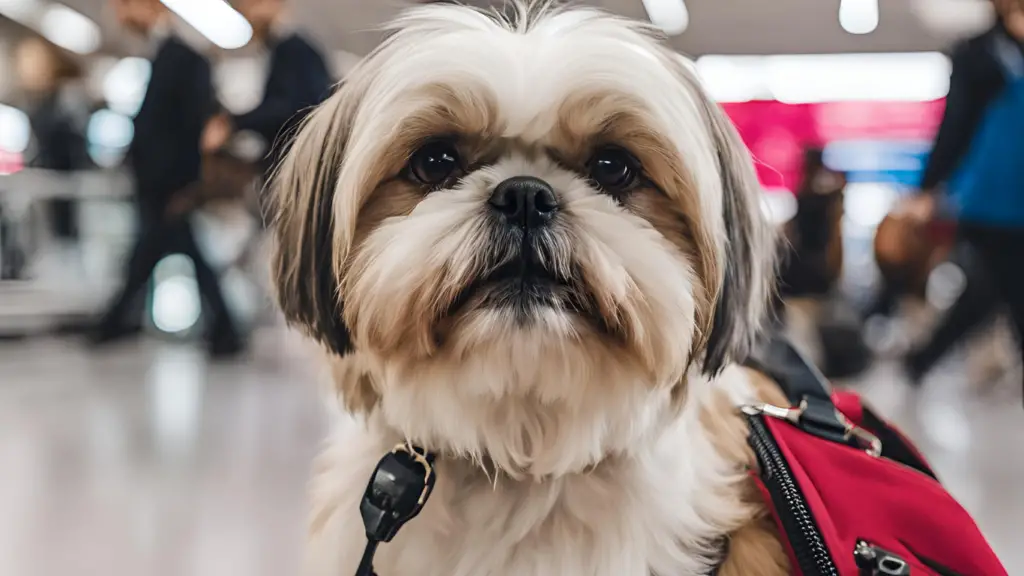
Separation anxiety is a common issue in many dogs, especially in breeds like the Shih Tzu, which are known for their deep attachment to their owners. Shih Tzus thrive on companionship and form strong emotional bonds with their human families. While this close connection can be a source of joy, it also makes them prone to anxiety when they are left alone for extended periods. Managing your Shih Tzu’s separation anxiety is vital for both their mental health and your peace of mind. In this guide, we will explore the causes of separation anxiety, how to recognize the signs, and effective strategies to manage it.
Understanding Separation Anxiety in Shih Tzus

Separation anxiety arises when a dog becomes distressed due to being separated from their owner or a person they are strongly bonded with. For Shih Tzus, who are bred specifically as companion dogs, this anxiety can be particularly intense. Shih Tzus are highly emotional, and they naturally become deeply attached to their families. When left alone, their overwhelming emotional attachment can turn into anxiety, as they are unsure when or if their owner will return.
In some cases, separation anxiety can also have genetic components. Shih Tzus, being a sensitive breed, may be more prone to anxiety issues compared to other dogs. Changes in routine can also trigger anxiety. For instance, a shift in your work schedule, a move to a new home, or the addition of a family member may disrupt your Shih Tzu’s sense of stability and security, leading to heightened anxiety when separated. Additionally, Shih Tzus that experienced abandonment, rehoming, or prolonged loneliness during their early development stages are at greater risk of developing separation anxiety later in life.

Understanding why your Shih Tzu is experiencing separation anxiety is a key step in managing the issue. Addressing the root causes and being mindful of your dog’s background, routines, and sensitivities will help you tailor an effective approach to easing their distress.
Recognizing the Signs of Separation Anxiety
Recognizing the signs of separation anxiety is crucial for taking early action. The symptoms can range from mild behaviors, such as whining or pacing, to more severe behaviors like destructive chewing or self-harm. It’s essential to distinguish separation anxiety from boredom or bad behavior, as the underlying causes and solutions differ.

One of the most common signs is destructive behavior. A Shih Tzu with separation anxiety may chew, dig, or scratch at doors and windows in an attempt to escape or reunite with their owner. This destruction is not a result of disobedience but an expression of the dog’s intense distress. Another major indicator is excessive barking or whining. Shih Tzus suffering from anxiety often bark or howl continuously when left alone. This vocalization is not just a nuisance; it’s a clear signal of the dog’s discomfort and need for reassurance.
Pacing is another behavior that manifests when a Shih Tzu is anxious. You may notice your dog walking back and forth in a fixed pattern, which is a sign of nervous energy and restlessness. Additionally, some dogs with separation anxiety will experience loss of appetite or refuse to eat until their owner returns. This lack of interest in food can be a direct result of their emotional stress. In more severe cases, separation anxiety can lead to house soiling. Even if your Shih Tzu is house-trained, they may have accidents when left alone due to the overwhelming anxiety they are experiencing. These behaviors are typically displayed only when the dog is left alone or when they anticipate being left alone, such as when you start putting on your shoes or grabbing your keys.

Setting Up a Calm Environment
Creating a calm and reassuring environment is essential for managing your Shih Tzu’s separation anxiety. A predictable, comforting space can significantly reduce stress and make them feel more secure in your absence. One way to achieve this is by designating a specific area for your Shih Tzu where they can feel safe and comfortable while you’re away. This area could be a quiet room with their bed, favorite toys, and access to water.
Ensuring that the space is familiar and associated with positive experiences is important. Start by spending time with your dog in this area while you are home, so they learn to associate it with safety and comfort. Using calming scents like lavender or incorporating white noise can also create a relaxing environment, which can help reduce anxiety. Additionally, leaving a piece of your clothing or a blanket with your scent can be comforting to your Shih Tzu while you are away. Familiar smells are reassuring to dogs, and having something that smells like you may help ease their separation anxiety.

Another strategy is to limit exposure to external stimuli that might increase their stress. For example, if your Shih Tzu tends to bark at noises or activity outside, consider closing the blinds or using curtains to block out distractions. Maintaining a peaceful, controlled environment during your absence can go a long way toward helping your dog stay calm and relaxed.
Gradual Desensitization and Training
Gradual desensitization is one of the most effective ways to help your Shih Tzu overcome separation anxiety. The goal of desensitization is to slowly accustom your dog to being alone by exposing them to short periods of separation and gradually increasing the duration over time. Start by leaving your dog alone for just a few minutes while you remain nearby, and gradually increase the time apart as they become more comfortable.

It’s important to avoid making a big fuss when you leave or return home. Emotional goodbyes and greetings can amplify your Shih Tzu’s anxiety by reinforcing the idea that separations are a big deal. Instead, keep your departures and returns low-key to help your dog adjust to the idea of being alone as a normal, stress-free part of their routine.
Rewarding calm behavior is another key aspect of desensitization training. Offer treats, praise, or affection when your dog remains calm during short absences. Over time, this will reinforce positive behavior and help your Shih Tzu understand that being alone can be a peaceful and even rewarding experience.

In addition to desensitization, crate training can be helpful for some Shih Tzus. If introduced properly, a crate can provide a safe, den-like space where your dog feels secure. However, crate training must be done carefully and should never be used as a form of punishment or isolation. Ensure that the crate is a positive space by gradually introducing it with treats, toys, and comfort items.
Exercise and Mental Stimulation
One of the most important aspects of managing separation anxiety is ensuring that your Shih Tzu gets enough physical exercise and mental stimulation. A tired dog is generally a calm dog, so engaging your Shih Tzu in regular physical activities can significantly reduce their anxiety levels. Daily walks, playtime, and interactive games can help burn off excess energy that might otherwise contribute to nervous behavior when they are left alone.

In addition to physical exercise, mental stimulation is essential for keeping your Shih Tzu occupied and less focused on your absence. Puzzle toys, treat-dispensing toys, and interactive games that challenge your dog’s mind can provide a valuable distraction and help reduce anxiety. You can also rotate toys to keep things fresh and exciting for your dog. If possible, leave a variety of mentally stimulating toys in your dog’s designated space before leaving the house.
Ensuring that your Shih Tzu is both physically and mentally tired before you leave will help them stay calm and relaxed during periods of separation. Incorporating these activities into your dog’s daily routine will not only improve their overall well-being but also make it easier for them to manage the anxiety of being left alone.
Building Confidence Through Independence

Building your Shih Tzu’s confidence is key to reducing their separation anxiety. Dogs that are overly dependent on their owners are more likely to experience distress when left alone, so it’s essential to foster independence. One way to build your dog’s confidence is by encouraging them to spend time alone, even when you’re home. This can be done by gradually increasing the time your Shih Tzu spends in a different room or in their designated space without you.
Positive reinforcement is crucial during this process. Reward your dog for calm and independent behavior with treats, praise, or toys. Over time, your Shih Tzu will learn that being alone is not something to fear, and they will become more self-assured in your absence.

Another method to build confidence is through basic obedience training. Teaching your Shih Tzu commands such as sit, stay, and down can boost their self-esteem and provide them with a sense of accomplishment. The more your dog feels confident in their ability to follow commands and receive rewards, the more secure they will feel when left alone.
Socialization also plays an important role in building confidence. Introducing your Shih Tzu to new people, environments, and experiences in a controlled and positive way can help reduce anxiety and increase their ability to cope with new situations. The more comfortable your dog is with the world around them, the less likely they are to experience separation anxiety.
Seeking Professional Help

If your Shih Tzu’s separation anxiety is severe or if you have tried multiple strategies without success, it may be time to seek professional help. Consulting with a professional dog trainer or a certified animal behaviorist can provide you with tailored solutions for your dog’s specific needs.
In some cases, your veterinarian may recommend anti-anxiety medication or supplements to help manage your dog’s stress. These medications are typically used in conjunction with behavioral modification training and should only be considered under the guidance of a veterinarian.

Additionally, enrolling your dog in a training class or working with a behaviorist can provide structured support and guidance. Professionals can help identify triggers and offer techniques to modify your dog’s behavior in a safe and effective manner. With the right combination of training, patience, and support, even the most anxious Shih Tzus can learn to manage their separation anxiety.
Conclusion

Separation anxiety is a common issue among Shih Tzus due to their close bond with their owners. However, with a thoughtful approach and consistent training, it is possible to manage and even overcome this issue. Understanding the causes, recognizing the signs, and implementing strategies like desensitization, creating a calm environment, and building your dog’s confidence are essential steps in helping your Shih Tzu feel more secure when left alone. By fostering independence and providing both mental and physical stimulation, you can ensure your Shih Tzu leads a happy, well-adjusted life, even in your absence.


